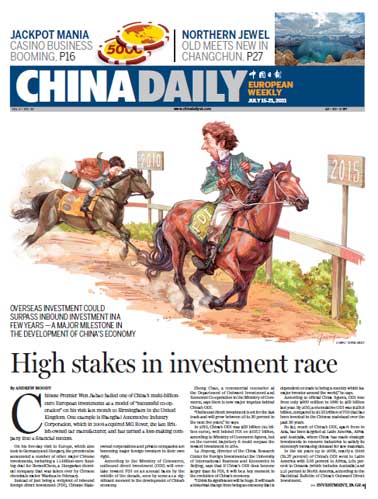Editorials
Check media concentration
Updated: 2011-07-18 08:04
(China Daily)
Rupert Murdoch's media empire continues to plunge deeper into the abyss. His two top executives including the one overseeing News Corporation's British operation have stepped down. In a major departure from his previous arrogance, Murdoch splashed his apologies over a full page of all the national newspapers in Britain over the weekend.
Murdoch's troubles started on July 4 after the Guardian newspaper in Britain revealed that the country's best-selling Sunday newspaper, the Murdoch-owned News of the World, was involved in the illegal hacking of mobile-phone messages. Since then, a whirlwind of condemnation has swept through the media and political landscape in Britain.
While the on-going saga is certainly bad news for Murdoch's News Corporation, it may be good news for Britain's media as a whole, provided it seizes the opportunity to enhance self-discipline and shore up quality journalism.
In the long run, the event will also have a far-reaching impact on the media across the globe. With the question of media plurality being once again pushed to the forefront of public debate, global corporate media ownership may be weakened and more diversity could be ushered in.
Under heavy pressure from the public and politicians in Britain, Murdoch has had to drop his bid to buy full control of the country's highly profitable pay-TV operator BskyB. According to the Financial Times, if he had succeeded, it would have given him 35 percent of the country's television market.
It is no exaggeration to say a handful of multinational corporations control nearly everything Westerners see and hear on the screen, online, over the airwaves and in print.
For years, Western media organizations have dominated international issues drowning out the media in the developing world. Such injustice has been fueled by the rise of powerful media conglomerations.
In the United States, five multinationals control the media: Time Warner; The Walt Disney Company; Murdoch's News Corporation, based in Australia; Viacom; and Bertelsmann, based in Germany. In Britain, Murdoch's News Corporation alone owns 37 percent of the newspaper circulation.
Recent years have seen growing criticism of such limited media ownership. Insightful people have already pointed out corporate media ownership is the hotbed for media commercialization and a hindrance to professionalism and ethical standards of journalism.
A check on the Western media concentration would be a blessing to people worldwide. A more diversified media would enable them to have a clearer picture of the world as it really is.
(China Daily 07/18/2011 page8)
E-paper

The perfect cut
Companies need to revamp, standardize to stave off quality challenges
Crowning achievement
Living happily ever after
Let there be smell
Specials

My China story
Foreign readers are invited to share your China stories.

90th anniversary of the CPC
The Party has been leading the country and people to prosperity.

Setting the pace in Turkey
China is building a 158-km high-speed railway in Turkey.
